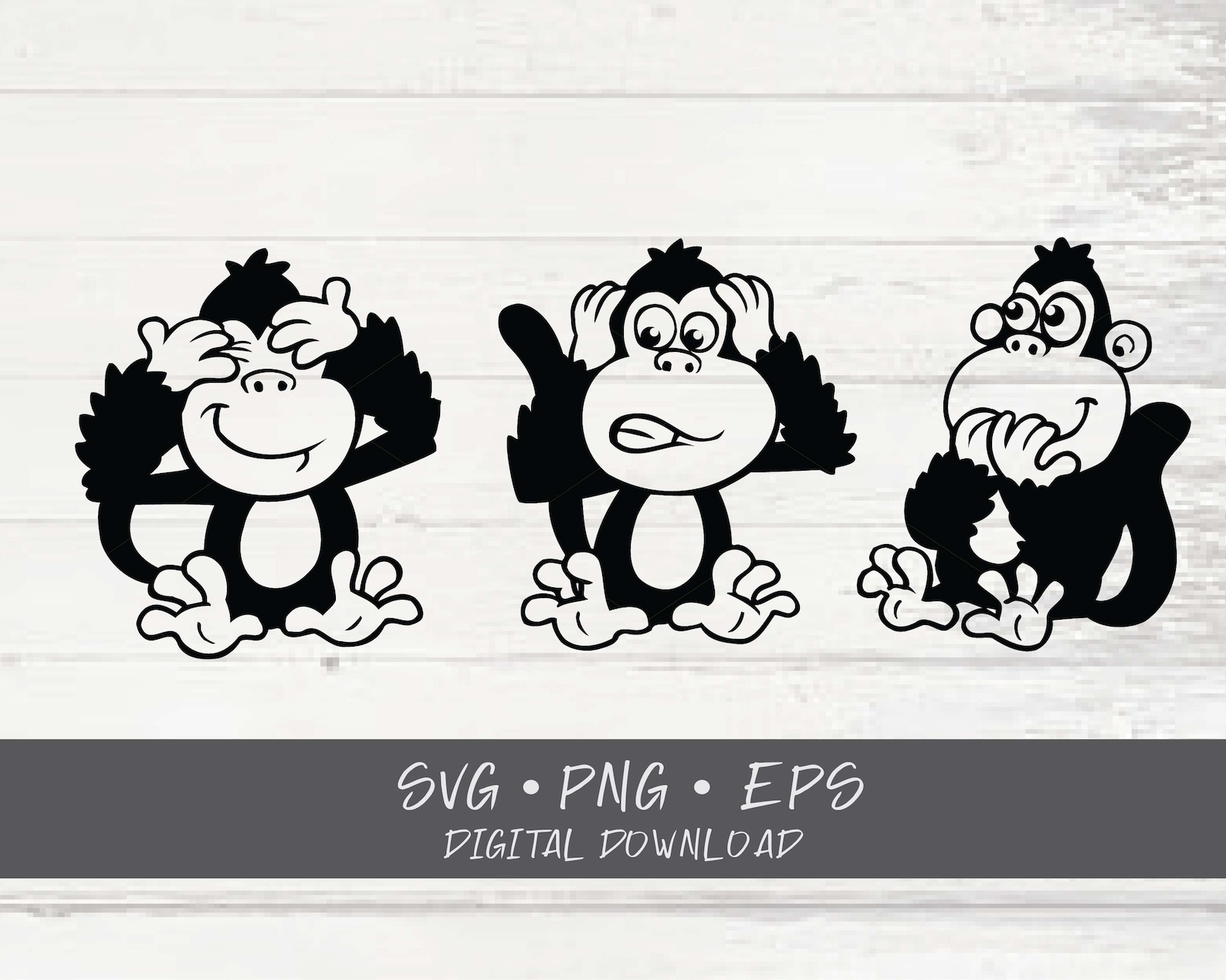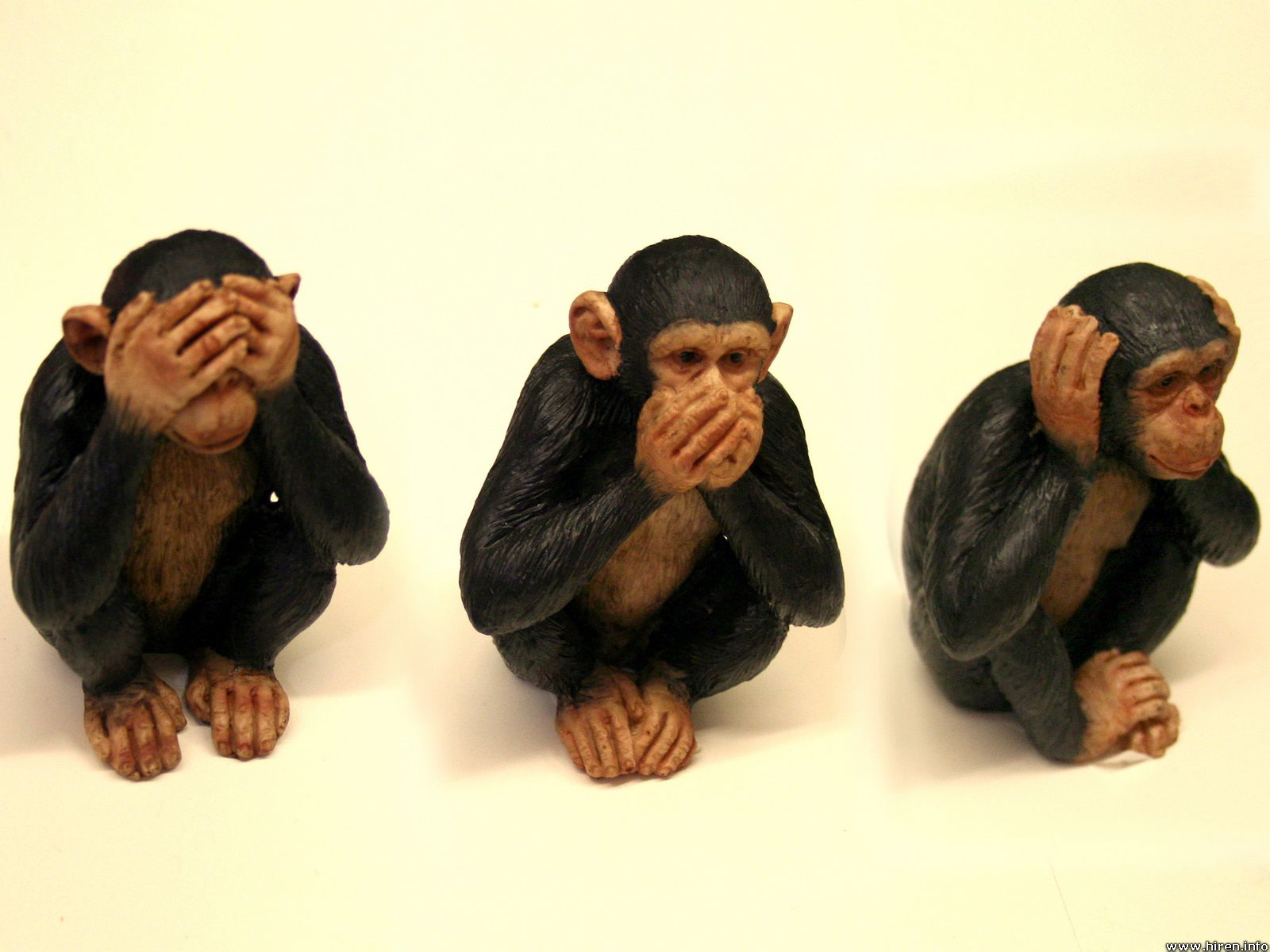In the realm of human communication, the proverb “Speak No Evil” presents a complex and enduring ethical dilemma. This ancient adage, echoing through centuries, invites us to explore the delicate balance between the power of speech and the potential consequences of remaining silent.
As we delve into the depths of this topic, we will uncover the historical and cultural roots of the proverb, examining its diverse interpretations and applications across societies. We will ponder the ethical implications of withholding speech, considering the moral dilemmas that arise when silence and speech collide.
Historical and Cultural Context
The proverb “Speak no evil” has a long and rich history, dating back to ancient times. It first appeared in the Bible, in the book of Proverbs, where it is written: “Whoever guards his mouth and his tongue keeps himself from troubles.” This proverb has been interpreted in many different ways over the centuries, but its core meaning is that it is important to be careful about what we say. Words can be powerful, and they can have a lasting impact on both ourselves and others.
Cultural Variations
The proverb “Speak no evil” has been adopted by many different cultures around the world. In some cultures, it is seen as a way to promote peace and harmony. In other cultures, it is seen as a way to protect oneself from harm. Regardless of its interpretation, the proverb “Speak no evil” is a reminder that we should all be mindful of the words we speak.
Ethical Implications
Withholding speech can raise complex ethical dilemmas. The choice between speaking up or remaining silent carries significant moral implications.
In some situations, withholding speech may be justified to protect oneself or others from harm. For example, a witness to a crime may choose to remain silent to avoid retaliation or endangerment.
Weighing the Consequences
When deciding whether to speak up or remain silent, individuals must carefully weigh the potential consequences. They should consider the potential benefits and harms of speaking out, as well as the impact on themselves, others, and the wider community.
In cases of whistle-blowing, for instance, individuals may face personal or professional consequences for exposing wrongdoing. However, the potential benefits to society, such as preventing further harm or promoting transparency, may outweigh the risks.
Balancing Rights and Responsibilities
Ethical implications also arise from the balance between freedom of speech and the responsibility to use speech responsibly. While individuals have the right to express their opinions, they also have a duty to consider the impact of their words and actions on others.
Hate speech, for example, may be protected under freedom of speech in some jurisdictions, but it can also have harmful consequences on individuals and communities. Therefore, individuals must exercise their right to speech responsibly, considering the potential harm their words may cause.
Social Consequences
Suppressing speech carries significant social consequences, impacting relationships, trust, and community dynamics. This section explores the potential benefits and drawbacks of maintaining silence in certain social contexts, analyzes the psychological effects of speech suppression, and discusses the role of social media in shaping its social consequences.
Impact on Relationships
Suppressing speech can erode trust and intimacy in relationships. When individuals feel unable to express their thoughts and feelings openly, it creates barriers to communication and understanding. This can lead to misunderstandings, resentment, and a breakdown in relationships.
Impact on Trust
Speech suppression undermines trust within communities. When people are not free to voice their opinions or concerns, they may begin to distrust those in power or those who hold opposing views. This can create a climate of fear and suspicion, making it difficult to build strong and cohesive communities.
Impact on Community Dynamics
Suppressing speech can stifle creativity, innovation, and social progress. When individuals are not allowed to express their ideas freely, they may be less likely to challenge the status quo or propose new solutions to societal problems. This can lead to a stagnation of ideas and a lack of progress.
Cognitive and Psychological Effects

Suppressing speech involves complex cognitive and psychological processes that can have significant impacts on mental health and well-being. Withholding speech can trigger a range of cognitive distortions, including:
Self-Censorship
- Individuals may internalize societal norms and expectations, leading to self-censorship.
- This can result in a narrowing of thought processes and a reluctance to express dissenting views.
Emotional Suppression
- Suppressing speech can lead to emotional suppression, where individuals inhibit the expression of their feelings.
- This can result in psychological distress, anxiety, and depression.
Cognitive Impairment
- Long-term suppression of speech can impair cognitive functioning, such as memory, attention, and problem-solving abilities.
- This is because suppressing speech requires significant cognitive resources, which can deplete over time.
Communication and Expression
Communication, particularly through speech, is fundamental for effective exchange of ideas, understanding, and self-expression. However, when speech is restricted or suppressed, alternative forms of communication emerge, highlighting the adaptability and resilience of human expression.
Cultural and social factors significantly influence communication styles and self-expression. Body language, gestures, and nonverbal cues play a crucial role in conveying emotions, intentions, and meaning beyond words.
Effectiveness of Communication Channels
Different communication channels, such as face-to-face, written, and digital, vary in their effectiveness for conveying different types of messages. Face-to-face communication allows for immediate feedback and nuanced expression, while written communication provides a record and time for reflection.
Ethical Implications of Communication
Communication has ethical implications, including the potential for miscommunication and manipulation. Understanding the nuances of communication, such as tone, context, and intent, is crucial to avoid misunderstandings and ensure respectful and effective exchanges.
Improving Communication Skills, Speak No Evil
Improving communication skills and self-expression involves practicing active listening, clarifying intentions, and using appropriate nonverbal cues. Feedback from trusted sources can provide valuable insights for self-improvement.
Freedom of Speech and Censorship

The proverb “Speak no evil” advocates for refraining from uttering harmful or negative words, while the principle of freedom of speech emphasizes the right to express oneself without fear of reprisal. This tension highlights the complex relationship between individual expression and the potential consequences of speech.
Censorship, the suppression of speech deemed objectionable, raises ethical and legal considerations. On one hand, it can be necessary to prevent the spread of harmful or dangerous ideas, such as hate speech or incitement to violence. On the other hand, censorship can stifle legitimate dissent and limit the free exchange of ideas essential for a healthy society.
Ethical Considerations
- Balancing the right to free speech with the need to protect individuals and society from harm.
- Determining the criteria for what constitutes harmful or objectionable speech.
- Ensuring that censorship is not used to silence dissenting or unpopular views.
Legal Considerations
- Defining the legal limits of free speech and the circumstances under which it can be restricted.
- Establishing fair and transparent processes for reviewing and challenging censorship decisions.
- Protecting individuals from retaliation for exercising their right to free speech.
Literary and Artistic Representations
Literary and artistic works have often explored the theme of “Speak no evil,” delving into the consequences of suppressing speech and highlighting the importance of speaking out. These works use various literary devices and draw inspiration from historical and cultural contexts to convey their messages.
Examples of Literary Works
In literature, works such as George Orwell’s 1984 and Margaret Atwood’s The Handmaid’s Tale depict dystopian societies where free speech is severely restricted. These novels explore the psychological and social effects of censorship, demonstrating the dehumanizing impact of silencing dissent.
Other literary examples include:
- Fahrenheit 451 by Ray Bradbury: A novel that depicts a society where books are banned and burned.
- The Book Thief by Markus Zusak: A story set in Nazi Germany that explores the power of words and the dangers of silence.
- To Kill a Mockingbird by Harper Lee: A novel that addresses racial injustice and the importance of speaking out against prejudice.
Modern Applications
The proverb “Speak no evil” remains relevant in contemporary society, guiding our interactions in various digital and social spheres. Its application extends beyond traditional face-to-face communication, impacting areas such as social media, political discourse, and ethical dilemmas.
Social Media
Social media platforms, while offering opportunities for connection and information sharing, also present challenges related to anonymity and the spread of misinformation. The proverb “Speak no evil” reminds us to be mindful of the consequences of our online speech, encouraging us to avoid spreading false or harmful information that could damage reputations or sow discord.
For example, the spread of fake news during the 2016 US presidential election highlighted the need for individuals to critically evaluate information before sharing it. By adhering to the principle of “Speak no evil,” we can help curb the dissemination of misinformation and promote a more informed and responsible online environment.
Political Discourse
In the realm of political discourse, the proverb “Speak no evil” encourages us to engage in respectful and constructive dialogue, even when we disagree with others’ views. The media, as a powerful tool for shaping public opinion, has a responsibility to present balanced and accurate information, avoiding sensationalism and partisan bias.
The rise of echo chambers, where individuals are exposed only to views that align with their own, can lead to a lack of critical thinking and the polarization of society. By actively seeking out diverse perspectives and engaging in respectful dialogue, we can foster a more informed and tolerant political landscape.
Ethical Dilemmas
The tension between freedom of speech and the need for civility presents ethical dilemmas in contemporary society. While we value the right to express our opinions, we must also consider the potential harm caused by hate speech, defamation, or incitement to violence.
For example, the debate over hate speech on social media platforms highlights the need to balance freedom of expression with the protection of vulnerable groups from online harassment and discrimination. By carefully considering the potential consequences of our words, we can navigate these ethical dilemmas and promote a more just and inclusive society.
Exceptions to the Rule
The adage “Speak no evil” generally promotes maintaining harmonious relationships and avoiding unnecessary conflicts. However, there are certain situations where breaking this rule may be justified or even necessary.
Whistleblowing and Reporting Crimes
Whistleblowing involves exposing wrongdoing or illegal activities within an organization or government. While it can be a difficult and potentially risky act, it can also be crucial for protecting the public interest. For example, whistleblowers have played a significant role in uncovering corporate fraud, environmental violations, and political corruption.
The Power of Silence
Silence is not merely the absence of sound; it is a potent form of communication that can convey messages and influence outcomes as effectively as words. Silence can be a form of protest, a means of expressing disapproval, or a way to assert control over a situation.
Silence as Protest
Silence has been used as a powerful tool of protest throughout history. In the United States, the Montgomery Bus Boycott (1955-1956) saw African Americans refusing to ride buses to protest racial segregation. Their silence, in the face of oppression, sent a clear message to the authorities and helped bring about change.
Silence as Disapproval
Silence can also be a way of expressing disapproval. When people remain silent in the face of injustice or wrongdoing, it can send a strong message that they do not condone the behavior. For example, the silence of bystanders in the face of bullying can empower the bully and make the victim feel isolated.
Silence as Control
In some cases, silence can be used as a way to assert control over a situation. By refusing to speak, people can avoid giving away information or expressing an opinion that could put them at a disadvantage. For example, a suspect in a police interrogation may remain silent to avoid incriminating themselves.
The Dangers of Suppression
Suppression of speech can have severe consequences for society, eroding trust, spreading misinformation, and stifling creativity and innovation. Historically, suppression has led to censorship, propaganda, and the silencing of dissenting voices.
Erosion of Trust
When speech is suppressed, it undermines public trust in institutions and authorities. People become skeptical of information and may resort to alternative sources, which can spread misinformation and conspiracy theories. This erosion of trust can lead to social unrest and political instability.
Spread of Misinformation
Suppression can also lead to the spread of misinformation, as people are less likely to hear alternative viewpoints. This can have dangerous consequences, especially in the context of public health or political decision-making.
Stifling of Creativity and Innovation
Free speech is essential for creativity and innovation. When ideas are suppressed, it creates a climate of fear and self-censorship, which can stifle the exchange of ideas and prevent new discoveries.
Democratic Principles
In a democratic society, free speech is a fundamental right that allows citizens to participate in public discourse and hold their leaders accountable. Suppression undermines democratic principles and can lead to authoritarianism.
Solutions
To address the problem of suppression, it is crucial to promote tolerance, encourage critical thinking, and support independent media. Tolerance allows for diverse perspectives to be heard, while critical thinking helps individuals evaluate information and resist manipulation. Independent media provides a platform for voices that may be suppressed by mainstream outlets.
The Importance of Dialogue
Open and honest communication is crucial for resolving conflicts and fostering understanding. Dialogue allows individuals to express their perspectives, listen to others, and work towards common ground.
Listening attentively, empathizing with others’ viewpoints, and engaging in respectful discourse are essential for constructive dialogue. These elements create a safe and inclusive environment where diverse perspectives can be heard and considered.
The Role of Listening
- Listening attentively demonstrates respect for others and their opinions.
- It allows individuals to fully comprehend the perspectives of others, even if they disagree.
- Active listening involves paying attention to both verbal and non-verbal cues, asking clarifying questions, and summarizing to ensure understanding.
Case Studies

Individuals and groups have often faced ethical dilemmas related to “Speak no evil.” Their choices and the consequences of their actions provide valuable lessons for understanding the complexities of this principle.
One notable case is that of the German industrialist Oskar Schindler during the Holocaust. Schindler witnessed the atrocities committed against Jews but initially remained silent to protect his business interests. However, he eventually decided to risk his life by using his resources to save over 1,200 Jews from the Nazi concentration camps.
The Bystander Effect
Another case study is the bystander effect, a phenomenon where individuals are less likely to intervene in an emergency situation when others are present. This effect has been observed in cases such as the murder of Kitty Genovese in 1964, where 38 witnesses failed to report the crime or assist the victim.
Whistleblowers and Ethical Dilemmas
Whistleblowers who expose wrongdoing or corruption often face ethical dilemmas. They must balance the potential benefits of speaking out against the risks of retaliation or legal consequences. The case of Edward Snowden, who leaked classified information about the NSA’s surveillance programs, illustrates the complex ethical considerations involved in such situations.
– Examine the role of historical context and societal pressures in shaping cultural attitudes towards free speech.: Speak No Evil
Historical context and societal pressures play a significant role in shaping cultural attitudes towards free speech. In societies with a history of authoritarian rule, for example, free speech may be seen as a threat to the established order and therefore discouraged or suppressed. Conversely, in societies with a tradition of democratic values, free speech may be seen as a fundamental right and essential for the functioning of a healthy society.
Societal pressures can also influence cultural attitudes towards free speech. In societies where conformity is highly valued, for example, individuals may be less likely to express opinions that deviate from the norm. In societies where individualism is more highly valued, individuals may be more likely to express their own opinions, even if they are unpopular.
[detailed content here]
Last Word
Throughout our exploration, we have navigated the intricate tapestry of “Speak No Evil,” uncovering its profound impact on individuals, communities, and society as a whole. This proverb, both timeless and timely, continues to resonate in our modern world, reminding us of the delicate balance between freedom of speech and the potential consequences of suppressing our voices.
As we move forward, let us embrace the power of dialogue, fostering an environment where diverse perspectives can be heard and respected. By challenging the boundaries of silence and embracing the courage to speak out, we can create a society where “Speak No Evil” is not a mandate but an invitation to engage in meaningful and transformative conversations.
General Inquiries
What is the historical origin of the proverb “Speak No Evil”?
The proverb “Speak No Evil” has ancient roots, tracing back to the teachings of Confucius and the Three Monkeys of Japanese folklore.
How does the interpretation of “Speak No Evil” vary across cultures?
The interpretation of “Speak No Evil” varies widely across cultures, influenced by factors such as societal values, religious beliefs, and political systems.
What are the ethical implications of suppressing speech?
Suppressing speech can have serious ethical implications, including the erosion of trust, the spread of misinformation, and the stifling of creativity and innovation.
What are the potential benefits of maintaining silence in certain social contexts?
In certain social contexts, maintaining silence can have benefits such as preserving relationships, avoiding conflict, and allowing for reflection and contemplation.
